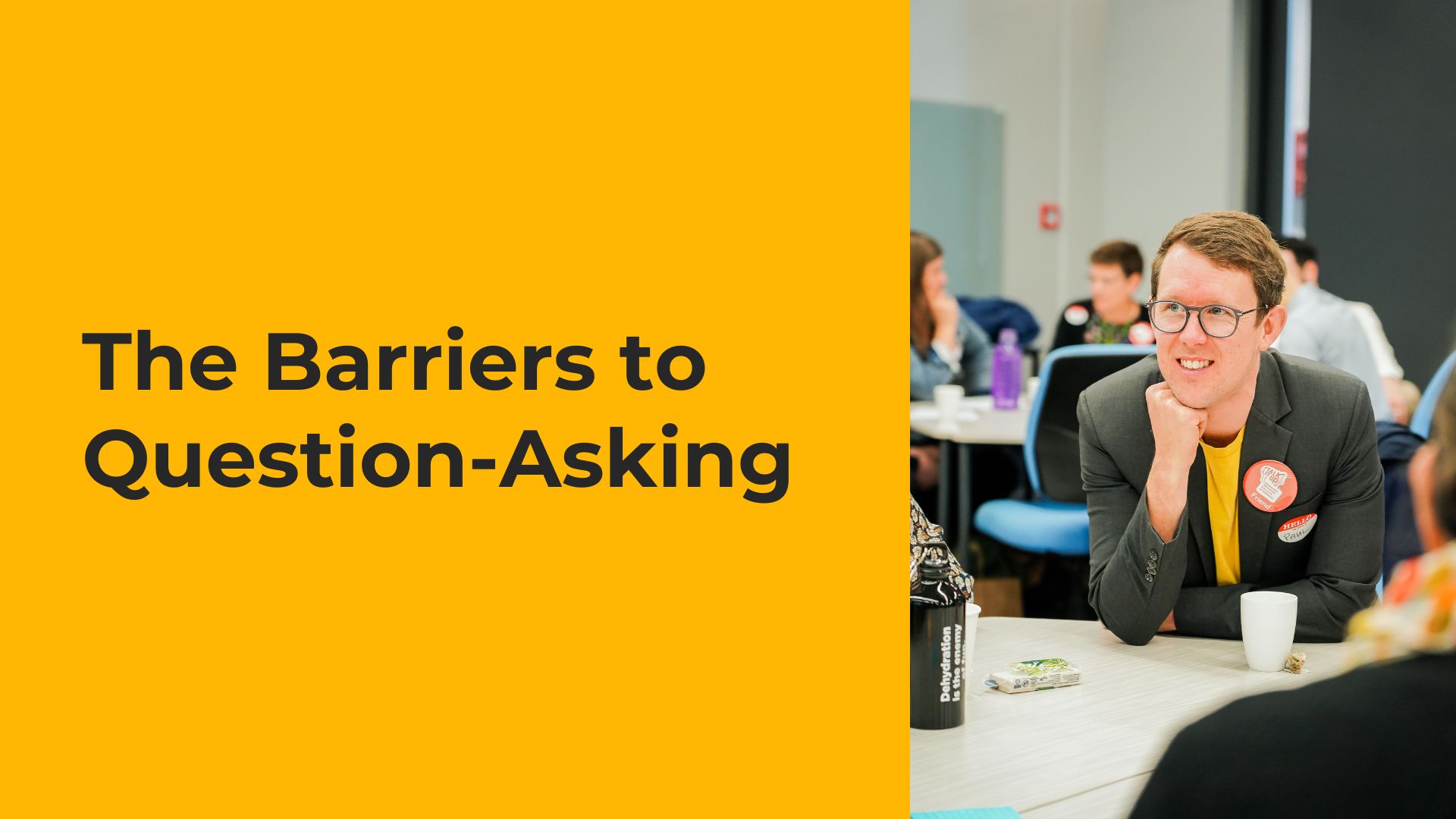The Barriers to Question-Asking

Things never seem to go according to plan when you're leading teams and projects, do they.
Last week I wrote about the power of asking questions. I liken questions to portkeys in the Harry Potter universe. They transport us to different worlds.
But when we talk about this in workshops, somebody will always push back on my belief that asking is leading.
"Won't people just think I'm ignorant or annoying for asking too many questions?"
I get where these sorts of concerns come from. As your responsibilities increase, so too does the sense that you ought to have things figured out. You're a leader... you should be confident and clear and compelling, right?
I believe this mindset - what we might call a hero mindset - is creating a lot of burned out leaders. Among the major findings the Development Dimensions International’s Global Leadership Forecast 2021 were that nearly 60% of leaders reported feel "used up" at the end of the workday, which is a strong indicator of burnout.
So today I want to address head-on the factors that quash our questions.
1. Threats
I once worked as a waiter at a bustling beachside restaurant. The owner's philosophy could be summed up as "my way or the highway."
One day she grabbed a pen in anger and stabbed half a dozen plastic milk bottles, leaving somebody else to clean up the mess.
The first words she said to me on my first day were "You're @#$%ing late. Don't ever be late again."
(I had in fact arrived on time and had been halfway through getting a tour from another staff member.)
Many small things kept creating incredible frustration for me as a waiter.
One was that we were required to charge 50 cents for an extra ramekin of tomato sauce. Customers would review their receipt and go "What's that extra 50 cents for?"
This tiny cost would ruin their perception of their entire meal, even though the food was delicious.
But do you think I dared to ask the owner to change that policy?
Questions are small acts of rebellion, and sometimes we dare not rebel.
2. The expert's dilemma
My parents have been clearing their garage recently and I recently received a box filled with old school books.
This sparked a vivid memory of Year 6 English class. The teacher had recently announced that I was at risk of losing my number 1 place in the class. Guy Montgomery was hot on my heels!
(Guy is now a sharp-witted comedian whose standup routines often center around the oddities of the English language. His 5 minute "lecture" on the show Comedians Giving Lectures is a golden example of this. He's hilarious.)
So what did I do?
I cheated.
I can't remember how, but I remember cheating in the spelling tests.
Our education system rewards people who get things right; who know the answers.
Sadly, in the real world, this blocks us from asking questions in complex situations.
We've been conditioned to think the best way to be valuable is to give advice, to share our thoughts, to be the expert, to get it correct.
We worry that our question will expose our lack of knowledge. We worry that people will think us stooopid if we ask the question.
So we stay quiet... waiting until we can jump in and add value with what we do know.
We tell, tell, tell... and we don't balance that with enough asking.
3. Technique
There's an art to asking, and that includes that words you use.
You've probably attended lectures where an audience member takes 2 minutes to ask a question but still leaves the speaker wondering what their question is.
Sometimes we don't have the words to ask the question in the right way at the right time.
So we remain quiet.
4. Timewasting
Have you ever heard anybody start a question with the phrase "Look, I don't want to take us off track, but..."
Questions can sometimes take up a lot of space.
We need to careful what questions we ask and when we ask them. (More on that another day.)
This concern can sometimes hold us back from asking a question.
We don't want to take people down rabbit holes or take up their valuable time.
Of course, there are ways to ask the question without taking up time.
"This might be a question for another day..." or "I'd like us all to consider over the next week how we might..." or "There's a bigger question at play here which might be good for our team offsite..."
Asking the question might consume some time, yes. But how much time might be wasted if you don't ask the question?
What stops you from asking questions?
I'd love to hear any reflections you might have on all this. I'm obsessed with helping people like you to ask more and tell less. It's the key to unlocking so much hidden potential.